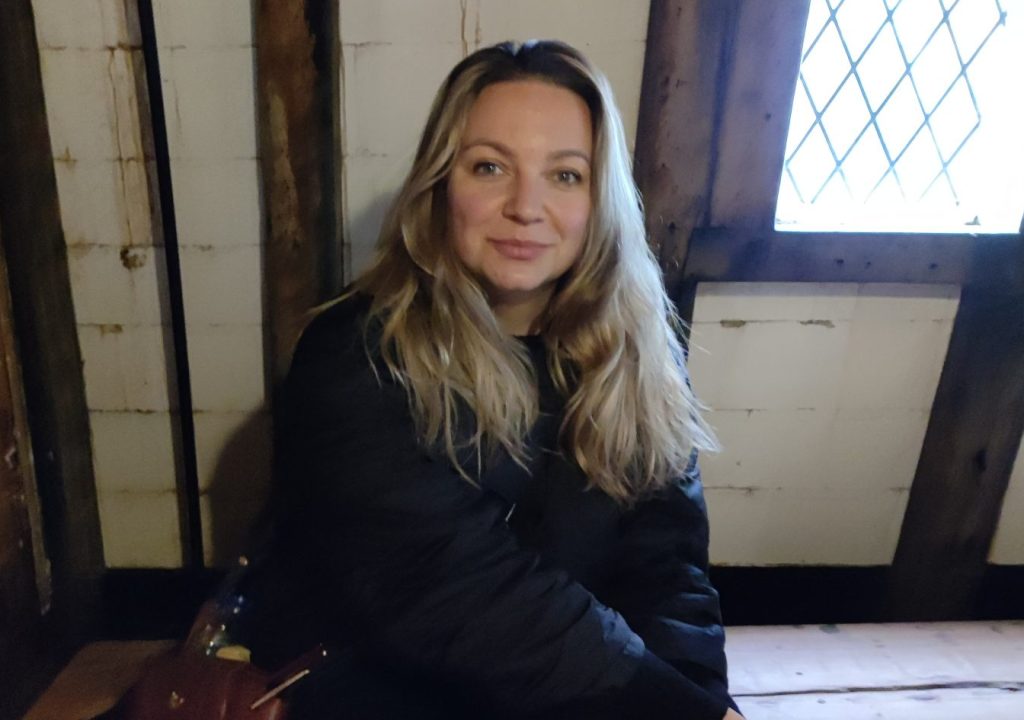This week marks one year since the UK’s Homes for Ukraine scheme was introduced, and some Ukrainians have thanked the government for their support.
Some organisations, however, have raised concerns that the government asking hosts to sponsor refugees for only a minimum of six months is only a temporary solution to a problem proving to become more long term.
After Russia invaded Ukraine on 24 February last year, an unprecedented number of displaced people fled the country searching for safety.
Olena, a financial analyst from Ukraine’s capital Kyiv, said: “To tell you the truth, we never expected something like that would ever happen.
“On the 24th of February last year when it actually started at night, we moved from our city, from our apartment, thinking that it would be [for] about a week, but as you can see now it’s [been] much more than a year and the war is still there in Ukraine.”
Olena moved to the UK with her two children after hearing about the Homes for Ukraine scheme and found a host family in London.

She was able to move into the home after only a week of finishing the application process.
“They saved us,” she said. “I could not believe that the government of the UK were so kind to people like us and let us come to this country and to support us and to provide us with different kinds of support and to live here.”
According to the government, the UK has welcomed over 165,000 Ukrainians since Russia invaded Ukraine just over one year ago, and arrivals are able to work and access benefits.
Under the Homes for Ukraine scheme, hosts receive a monthly thank you payment of £350 for providing a home during the guests’ first 12 months in the UK, which is now increasing to £500 a month during their second 12 months.
Director of London based Ukrainian Welcome Centre Andriy Marchenko said that initially many people in the UK opened their homes to Ukrainians, but the number of sponsors has dwindled since last spring.
He said: “They cannot go on for a number of factors: the cost of living crisis, or sometimes people – even though they are absolutely willing to support Ukrainians and they have open hearts – they just cannot cope with it.”
Marchenko said that most of the queries they receive from Ukrainian displaced persons concern housing.
He said: “This is an overwhelming issue and this is the most pressing and there is little progress on this so far.”
Marchenko added that the centre has even encountered some rough sleepers, but this is not a common occurrence.
Co-founder of social enterprise Beam Seb Barker said: “We are seeing an increasing number of people experiencing homelessness, who are from Ukraine, or going to councils for help and approaching Beam for support as well.”
Beam is an online platform where users can read stories of refugees facing homelessness and can donate to support them in the long term. They have launched crowdfunding campaigns for 34 Ukrainian refugees so far, including Olena.
“When you look at the government’s measures, I think there was a really innovative response with the Homes for Ukraine scheme, but it was quite short term.
“That kind of ability to know where to start and to get that kind of really focused help is often lacking, and that’s particularly true on the council side where councils themselves are becoming more and more strained by increasing numbers of people coming to get help from them.”
Homelessness, Seb explained, takes many different forms. Most people from Ukraine that come to Beam for support are in temporary accommodation, or are sofa surfing because they do not have a place to stay but at the same time are not forced to sleep on the streets.
He said: “I think, increasingly, it will shift because the temporary accommodation that’s available in London is already under so much strain.
“If you see many more Ukrainians becoming homeless, and sadly, I do think that’s likely based on where we are today, the temporary accommodation options just won’t be there. So I think sadly, more and more people will end up on the street as a result of that.”
Matt Downie, Chief Executive at homeless charity Crisis said: “It’s simply unacceptable that thousands of people who arrived in the UK to escape the conflict in Ukraine are now at risk of homelessness.
“Although the visa schemes introduced by the government have provided a lifeline for some, many refugees are now facing homelessness due to issues surrounding existing funding and support.
“With the cost-of-living crisis continuing to place people across the country under extreme financial pressure, many refugees are also struggling with accessing affordable housing – hindering their ability to move on into a settled home and rebuild their lives.
“We need to see action taken. The Government must introduce extended and harmonised financial support to ensure that no one who has found refuge in the UK is left without a safe place to live.”
The government has said that local authorities have a legal duty to ensure no families are left without a roof over their heads.
A government spokesperson stated: “We are giving councils more resources to help them address these challenges.
“For those on the Homes for Ukraine scheme we are providing councils with per person funding, as well as £150 million to support guests into their own homes and £500 million to find housing, and we also extended and increased ‘thank you’ payments for sponsors to try to ensure sponsorships last as long as possible.
“In addition we have provided significant support to help people, including hosts, through these tough times by capping energy bills and delivering direct payments worth £1,200 to millions of vulnerable households this year.”
To read more about Olena’s story and donate, visit her fundraising page on Beam’s website.
Featured image credit: Yehor Milohrodskyi on Unsplash





